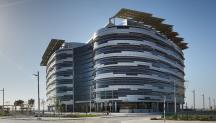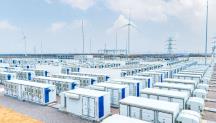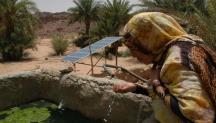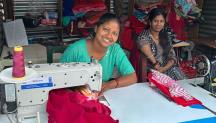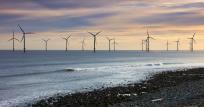
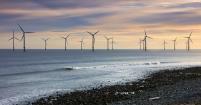
Blue Economy Can Help Members Boost Offshore Renewables
Newsletter
“An important part of the solution to today’s energy crisis may lay with our oceans as a source of local and abundant renewable energy”, said Roland Roesch, Deputy-Director of IRENA’s Innovation and Technology Centre, at the fourth meeting of the Collaborative Framework on Ocean Energy/Offshore Renewables, “which also may foster a blue economy benefiting coastal areas and island territories. But we need to create the enabling frameworks to speed up its deployment.”
Co-facilitated by Tonga and Italy, the virtual meeting was attended by 57 participants from 32 Members and States in Accession, as well as representatives of the industry and international organisations, including Global Wind Energy Council (GWEC) and Ocean Energy Europe. The meeting’s purpose was to share best practices to accelerate the deployment of offshore renewables globally.
According to IRENA estimates, 2000 gigawatts (GW) of installed offshore wind capacity will be needed to keep the goal of limiting global temperature to 1.5°C and achieve net zero by 2050. However, this progress will not come without challenges.
H.E. 'Akau'ola, Co-Facilitator of the Collaborative Framework and Ambassador of Tonga to the UAE, said renewable energy sources such as solar, wind, and hydrogen were dominating the energy base. But, he said, there is a sufficient body of quantitative evidence that offshore renewable energy has enormous untapped potential to drive the global energy transition.
Dorothea Damkjaer, Chief Advisor - Green Diplomacy and Climate, Ministry of Foreign Affairs, Denmark, introduced a new initiative to promote such a collaboration: The Global Offshore Wind Alliance (GOWA). Founded by Denmark, IRENA and GWEC, the complementary initiative has the ambition to create a global driving force for the uptake of offshore wind through political mobilisation.
“GOWA intends to have a significant role in convening governments and industry to address issues pertaining to the deployment of offshore renewables and sharing best practices for overcoming obstacles. Its workstreams will be determined by members' interest and willingness to collaborate. The aim is to achieve a total global offshore wind capacity of 380 GW by 2030, with 35 GW of annual new capacity on average each year across the 2020s,” she added.
Denmark, IRENA and GWEC called on all interested members and parties to leverage GOWA to support the acceleration of offshore renewable energy solutions across different sectors. Sharing enablers of best practices to accelerate the uptake of ocean renewables, Rebecca Williams, Global Head of Offshore, GWEC, said offshore wind flourishes in a policy environment that significantly reduces the time to grant permits and monetise all the value of offshore renewables via innovative electricity procurement approaches as discussed in the EU.
The meeting concluded with a live polling session, inviting participants to share their views on the focus of working groups under the Collaborative Framework. Members prioritised facilitating and expediting permitting processes for offshore wind and instruments for scaling up investment for ocean energy as the priority to be addressed by policy makers.
